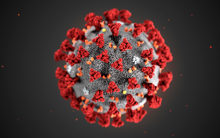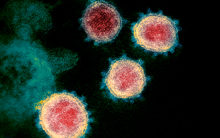Representatives of The Royal College of Pathologists, British Association of Cytopathology (BAC), Institute of Biomedical Science (IBMS) along with representatives from Public Health England, NHS Improvement, and stakeholder charitable organisations, joined a meeting called by NHS England on 15 August in London.
NHS England delivered a presentation to inform and update on the progress and current position in relation to the implementation of HPV Primary Screening into the NHS Cervical Cancer Screening Programme, the recent key decisions that have been made and timescales for key milestones.
It was explained that NHS England’s original intention (October 2017) had been to commence a national two-stage procurement process (consisting of a National Framework with Regional Mini-Competitions in order to secure up to a maximum of 13 providers) in August 2018, for contracts to be awarded by December2018 to commence from April 2019. However, following feedback from the four national market engagement events held in April 2018, decisions were made within NHS England to pause and consider whether their initial approach to implementing HPV primary screening was still correct. This decision was only made on the proviso that the December 2019 implementation date was not impacted.
Following this, an HPV Stocktake Planning meeting, jointly hosted by NHS Improvement, NHS England and the Royal College of Pathologists, was held on 25th June 2018 to discuss the feedback raised at the market engagement events, and to explore alternative delivery strategies for consideration. NHS England considered the discussions and suggestions arising from this meeting and undertook further work to ensure that their legal, commercial and contracting responsibilities would still be met. Consequently, key decisions have now been made (August 2018) which address both the stakeholder feedback and also ensures that 100% geographical coverage of primary HPV screening will be achieved by December 2019:
Procurement Process
To run a national, one-stage open tender procurement process commencing in November 2018 to secure up to a maximum of 13 providers to deliver an HPV primary screening service; successful providers will consolidate existing services onto a maximum of 13 sites over a planned period. The Invitation to Tender (ITT) will be published in November 2018 which will provide more definitive details although the closing date is currently expected to roughly be end December/early January with evaluation of bids up to April 2019. This will allow for signed contracts for services to commence from 1st July 2019. Although it is acknowledged that some providers may still be delivering on more than one site post- December 2019, the expectation is that this will be for a short transitional period and there will be a date agreed from when it will be required that all services are delivered from one site.
Resilience
Working with NHS Improvement to ensure alignment with existing pathology networks, Heads of Public Health Commissioning will offer existing provider laboratories, working with their emerging pathology networks, the opportunity to implement HPV primary screening imminently, and prior to the procurement process. This is dependent on laboratories meeting the defined quality criteria and evidencing that robust risk mitigation plans are in place. Providers will continue this provision throughout the whole transitional period up to and following the procurement process, until new service contracts start.
Following this presentation, questions were invited, discussions took place around several issues, and the following points were made:
- It was highlighted by the professional bodies that the geographical areas for each of the contracts needs to be known in advance of the ITT publication in November, so that discussions can take place within appropriate networks. NHS England is now seeking further clarification from its procurement advisors on whether or not this can be shared.
- The minimum standard of 35,000 cytology slides will remain until primary HPV screening is fully rolled out, following which it will be reviewed as more evidence is gathered regarding a HPV screening population. However, during the transition period, there will be some flexibility and the standard will be ‘softly monitored’ by PHE/SQAS. It was expected that any laboratories converting during this first transitional period should achieve 35,000 slides in that year.
- NHS Improvement will have a supportive role and work with providers to develop joint working within and between pathology networks.
- NHS England is going to clarify TUPE regulations and confirmation of this will be included in the ITT. NHS Improvement believes that the emphasis should be on redeployment wherever possible rather than redundancy.
- Information Systems - this is being reviewed by NHS England and Capita. A risk assessment of the current system is being undertaken. It is believed that the current system can accommodate the switch to primary HPV screening but changes further down the line such as extension of screening intervals may require a new IT system.
- The evaluation from the Sentinel/Pilot sites is due to be published soon.
- Training / succession planning – all the professional bodies agreed this as being vital No specific additional funding for this has been declared however plans for training and staff recruitment will be included and evaluated as part of the bid process. Letters / messages to women – concern was raised by the charitable organisations regarding the increasing number of complaints about waiting times for results, the anxiety this is causing and the increasing negative media coverage. Everyone agreed to seek assurance that consistent messages to women are being delivered across the programme.
Next steps were confirmed as:
Procurement:
- Pre-procurement activities within NHS England will continue in preparation for the ITT publication in November.
Resilience
- Development of Operational Guidance on resilience and the checklist for use by local NHS England Commissioning Teams in their discussions with providers.
- HS England and NHS Improvement will issue a letter to current service providers requesting their indications on whether they wish to convert early or not
- Follow up meetings will take place between NHS England, NHS Improvement and Providers to confirm intentions.
- Development of an assurance process in order to ensure the programme remains safe and effective throughout transition
- Further meetings with stakeholders may be arranged as procurement plans progress, which all the professional bodies would welcome, but once the ITT is issued there will be no more meetings with professional bodies due to potential conflicts of interest.







